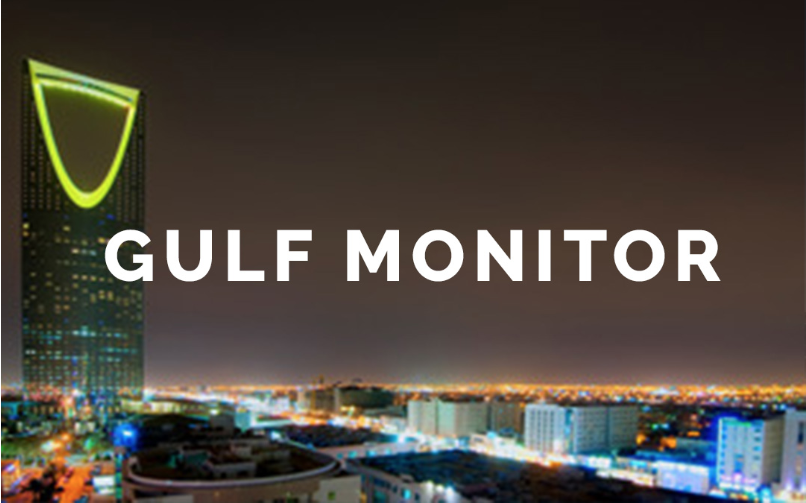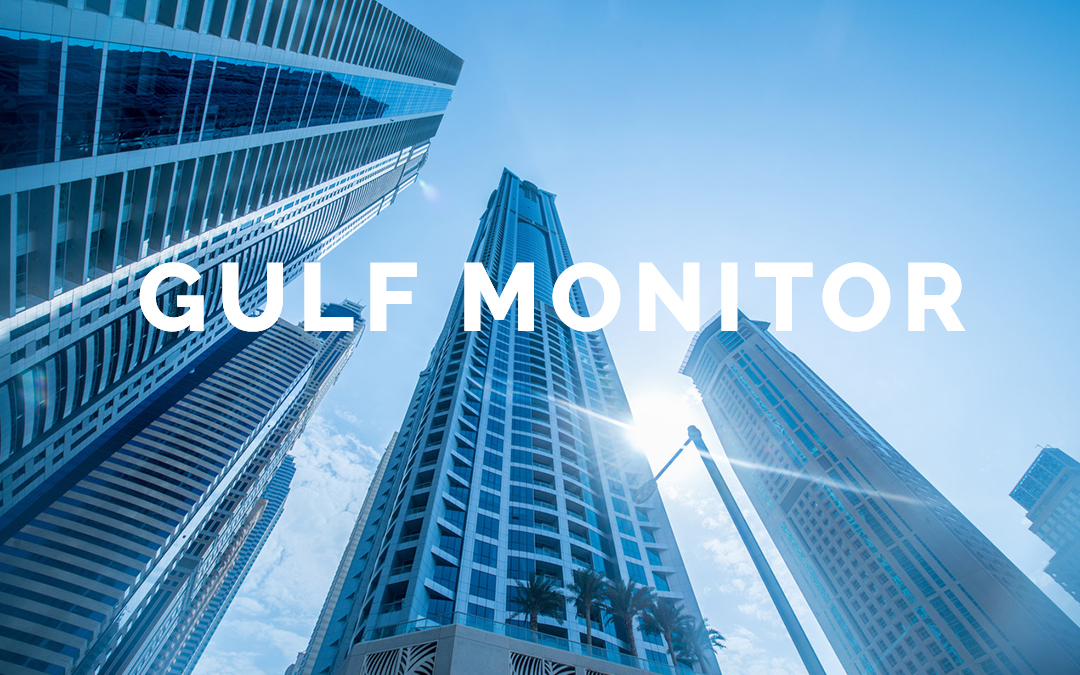Gulf Monitor
Gulf Monitor
Castlereagh’s Gulf Monitor provides an insight into key developments in economic diversification, monetary and fiscal policy, social policy and foreign relations in line with the collective ambitions of GCC states to change their economies, yet preserve their systems of governance.
Also housed on this page is the Market Watch collection by Karen E. Young, who has followed and mapped closely the GCC states’ policy response since 2015. It is an authoritative guide to understanding policy formation, reaction and hydrocarbon reliance in the GCC in the last five years.
Search Gulf Monitor

Oman’s new economic reality calls for Vision 2040 strategy rethink
John Davies
The severity of the economic challenge facing Oman will persist long after the COVID-19 pandemic has receded, requiring the country to rethink its long-term approach to economic development. Vision 2040 remains a top priority for the leadership under Sultan Haitham but with insufficient funds to carry out legacy spending commitments, it will have to rely upon the private sector to drive diversification. This means we could see an acceleration of reforms to attract investment, including further dismantling of foreign investment restrictions, privatisation, closer ties with China and a new tourism strategy.

Business as usual? UAE consumer spending post COVID-19
Karen Young
While the UAE has unveiled a series of stimulus measures to support businesses during COVID-19, the economic fallout of the pandemic has taken its toll on consumer behavior. With many of the country’s key sectors heavily affected by the virus and facing a potentially long period of recovery, businesses will need to adapt to new consumer preferences if they are to encourage a rebound in spending.

Where do Saudi Arabia’s youth stand amid COVID-19?
Mark C. Thompson
In Saudi Arabia, where some 60% of the population is under the age of 30, and largely well educated, constructive youth engagement is a necessity for the socioeconomic development. With the fallout from the coronavirus pandemic threatening the economy and the pace of societal transformation, this analysis considers the youth perspective on the crisis – how they view the impact on their job prospects and on their lives.

Can Saudi container ports demand keep up with capacity?
Daniel Moshashai
Over the last decade the volume of container throughput handled at Saudi ports has nearly doubled, due in large part to privatisation, regulatory changes and high-tech equipment. With ever more attention directed towards capturing Red Sea trade flows, Riyadh’s port development objectives are part and parcel of its broader goal of diversification. However, a closer look at the port story shows inconsistent growth and an uncertain future, leading to concerns of overcapacity.

COVID-19 highlights vulnerability of Gulf’s migrant workers
Fareed Mohamedi
The coronavirus pandemic is having a devastating effect on migrant workers in GCC member states. Lacking employment and social protections of the native populations, foreign workers are more likely to contract the disease and get the worst possible care. Moreover, they are the most vulnerable to the economic toll exerted by containment measures and the oil price collapse. The response of governments and employers has been predictably harsh.

The role of virtual water in Gulf food security
Jessica Obeid
The events of 2020 have thrown the Gulf states into an even deeper conundrum over how to balance food security with water scarcity. Which is less of a risk for countries of marginal environment – to depend on food imports and risk supply disruptions, or to invest in agriculture and risk further stressing water resources? In the quest for food security and self-sufficiency, the Gulf should account for the large amounts of virtual water it imports.

Gulf digital strategies to evolve after COVID-19
Opportunities are flourishing for some parts of the Gulf’s digital economy, including in e-commerce, fintech and ICT services, while other business activity grinds to a halt and economic growth slows sharply across the region. Part of the legacy of COVID-19 will be that the digital strategies of Gulf states place greater focus on health care and resilience to future pandemics. Low oil revenues could result in a relaxation of foreign ownership restrictions in order to encourage more private sector tech investment.
Gulf Monitor | John Davies | Digital economy GCC

Saudi Arabia’s vision for SMEs
Saudi Arabia has dedicated significant resources to expanding the role of small and medium-sized enterprises (SMEs) in the economy in recent years, and in 2020 has offered small businesses financial aid to the tune of $13bn to weather current crises. These moves are in line with Vision 2030’s goal of increasing SMEs’ contribution to GDP from 20% to 35%, and overall private sector contribution from 40% to 65%. If the kingdom is to achieve its ambition of expanding SMEs, however, it must continue – if not increase – efforts to support the sector, including by easing access to financing and developing a culture of entrepreneurship and innovation among its youth.
Gulf Monitor | Mark C.Thompson | SMEs Saudi Arabia

Developing cyber resilience: the GCC’s approach
The development of new technologies brings great opportunities – but also the potential for security breaches and potentially devastating cyberattacks. In the lead up to the 15th G20 summit in Riyadh, GCC countries are evaluating their own readiness to cope with future cyber intrusions. Improving cybersecurity in the region will require the public and private sectors alike to acknowledge the danger of these threats – and to allocate adequate funds to fight them.
Gulf Monitor | Yossi Mekelberg | Cybersecurity

Most likely to succeed? Potential scenarios for kuwaiti succession
With Kuwaiti ruler Sheikh Sabah now approaching his 91st birthday, the region’s attention is turning to the topic of succession once again. The transition of power to Crown Prince Sheikh Nawaf seems relatively certain. However, the matter of who will become the next crown prince and potential long-term ruler of Kuwait remains an open question; uncertainty surrounding succession leaves Kuwait open to internal conflict over tradition and family lineage, and could cause significant changes in regional and global relations.
Gulf Monitor | Courtney Freer | Kuwait Succession

UAE steel faces uncertain times
Steel manufacturers in the UAE have been faced with slowdowns in domestic demand in recent times, as real estate and infrastructure projects have tapered off. At the same time, protectionism has been choking overseas markets for these firms while domestic authorities have been reluctant to retaliate, leaving metals manufacturers on a very un-even playing field. While companies see a strategy of diversification and specialisation as one response, along with developing more vertically integrated international supply chains, the sector’s plight raises some important – and difficult – policy questions for market authorities and governments.
Gulf Monitor | Jonathan Gorvett | UAE Steel Industry

GCC responds to twin crises with financial rescue packages
The GCC states are all seeking policy responses to the twin crises of a sharp drop in oil prices and devastating economic effects of the COVID-19 pandemic. With business activity coming to a halt and government revenues from oil exports taking a dive, what policy levers and mechanisms do states have to alleviate some of the economic fallout?
Gulf Monitor | Karen E. Young | Fiscal policy